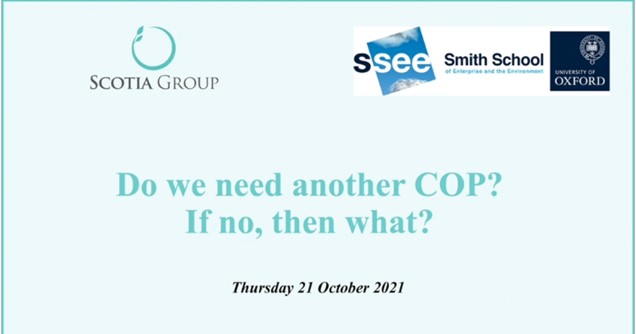Friend Institute: Smith School of Enterprise and the Environment, University of Oxford
Date: 21st October 2021, 13:30 BST
The Paris Agreement obligations expire in 2024. How do we ensure that global climate action will continue and be enhanced beyond the Paris legal infrastructure? Climate change is a problem that will remain with us for many more decades. We should start negotiations on how we should proceed after the Paris Agreement has come to an end. We should set this process in motion earlier on.
- Will COP26 inspire new and legally binding obligations to reduce emissions and on loss and damage resulting from climate change?
- What will the consequences be if COP26 does not deliver legally binding commitments?
- Would that result in future COPs with similar lengthy negotiations, or would it give rise to a new format?
- How would that format best be structured given that we are facing a global climate emergency and we are at T-9 years for halving emissions?
Opening remarks
Professor Cameron Hepburn Director of the Smith School of Enterprise and the Environment, University of Oxford
Moderator
Pilita Clark Associate Editor, Financial Times
Speakers
Dr Ingrid Barnsley Deputy Director, Environment Directorate, OECD
Dr Thomas Hale Associate Professor in Global Public Policy, Blavatnik School of Government, University of Oxford
Dr Adam Parr former CEO, Williams F1 team
Dean Adil Najam Pardee School of Global Studies, Boston University


